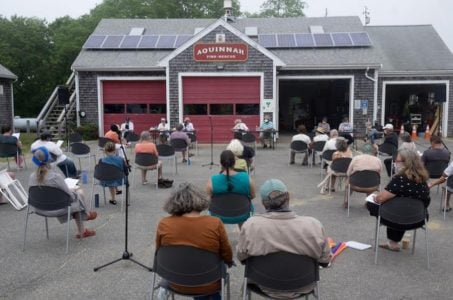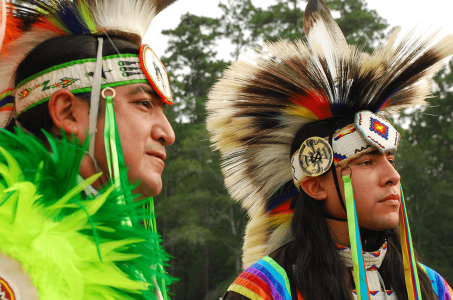Oklahoma Governor Kevin Stitt Concedes Tribal Gaming Compact Fight
Posted on: October 26, 2020, 09:47h.
Last updated on: October 26, 2020, 01:08h.
Oklahoma Governor Kevin Stitt (R) says he will not appeal a federal judge’s ruling that state Class III gaming compacts will automatically be renewed on Jan. 1, 2020.

Western District of Oklahoma Chief Judge Timothy DeGiusti ruled in July that Oklahoma’s 35 Native American tribes that operate Class III gaming saw their compacts with the state renew at the start of the year. Stitt argued the 15-year gaming revenue-sharing agreements expired on Jan. 1 and was hoping to force the tribes into negotiating new terms.
DeGiusti concluded that the compacts did in fact renew, and Stitt had no grounds to suggest otherwise.
While I have chosen not to appeal this decision, I believe that the people of Oklahoma will demand a fair deal that benefits all four million Oklahomans,” Stitt said in a statement.
Oklahoma tribal casinos share between four and 10 percent of their Class III gross gaming revenue (GGR) with the state. In the latest disclosed fiscal year (2018), that amounted to $138.6 million. Class II gaming includes slot machines and table games.
Endless Contract
Last summer, Stitt blamed poor government for essentially giving the tribes a perpetual sweetheart deal.
“It confirms my fears, and the fears of many fellow Oklahomans, that the State entered into a poorly negotiated deal, and now we must bear the cost of this mistake,” Stitt stated. “The federal court determined that the 2004 Gaming Compact auto-renewed for 15 years because of an action taken by an agency’s [Oklahoma Tribal-State Gaming Compliance Unit] unelected board to reissue licenses.”
The tribes’ compacts dictate that unless there is a change to the gaming landscape in Oklahoma, the revenue-sharing arrangements “shall automatically renew for successive additional fifteen-year terms.”
Stitt says Oklahoma and its tribes are at a crossroads following the recent McGirt v. Oklahoma US Supreme Court decision. The high court ruled that much of the eastern Oklahoma counties remain sovereign lands of the Five Civilized Tribes — Cherokee, Choctaw, Muscogee, Chickasaw, and Seminole.
“Our state is facing unprecedented uncertainty as a result of the US Supreme Court ruling in McGirt v. Oklahoma. Therefore, it is essential for state and tribal leaders to join together to resolve the challenges this ruling presents for Oklahomans and their businesses,” the governor said.
Tribal Gaming Share
Oklahoma is the country’s largest Class III gaming state by revenue and number of locations. There are 131 tribal gaming venues in the Sooner State.
The state’s Native American casinos generate an annual economic output of $10 billion and support some 75,000 jobs and $4.3 billion in wages.
States vary in taxing Native American Class III casino games. In Michigan, for example, tribal casinos share eight percent of their GGR up to $150 million, 10 percent on win, ranging from $150 million to $300 million, and 12 percent on revenue more than $300 million.
Other states, however, are more in line with Oklahoma’s tribal compacts.
In New Mexico, tribes share between 8.75 percent and 9.5 percent. In Wisconsin, tribes share just two percent of their slot income.
Related News Articles
Most Popular
VEGAS MYTHS RE-BUSTED: The Strip is the Brightest Place on Earth
Zillow: Town Outside Las Vegas Named the Most Popular Retirement City in 2024
UPDATE: Former Resorts World & MGM Grand Prez Loses Gaming License
Jackpot News Roundup: Two Major Holiday Wins at California’s Sky River Casino
Most Commented
-
UPDATE: Whiskey Pete’s Casino Near Las Vegas Closes
— December 20, 2024 — 33 Comments -
Caesars Virginia in Danville Now Accepting Hotel Room Reservations
— November 27, 2024 — 9 Comments -
UPDATE: Former Resorts World & MGM Grand Prez Loses Gaming License
— December 19, 2024 — 8 Comments -
FTC: Casino Resort Fees Must Be Included in Upfront Hotel Rates
— December 17, 2024 — 7 Comments
















No comments yet